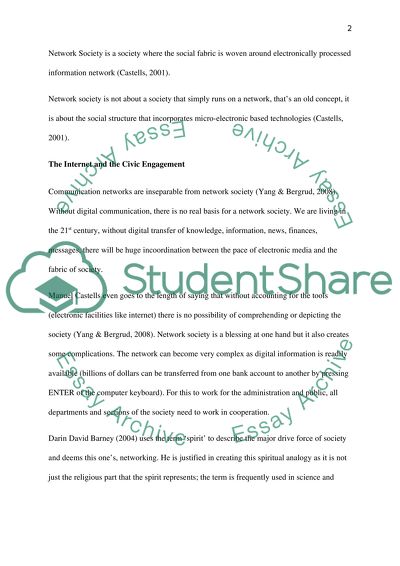Cite this document
(“The Network Society - How Has It Changed in Humans' Work And Interacti Essay - 1”, n.d.)
The Network Society - How Has It Changed in Humans' Work And Interacti Essay - 1. Retrieved from https://studentshare.org/information-technology/1619711-what-do-you-understand-by-the-network-society-how-has-the-network-society-changed-the-ways-in-which-we-work-and-interact-explain-this-through-a-relevant-case-study
The Network Society - How Has It Changed in Humans' Work And Interacti Essay - 1. Retrieved from https://studentshare.org/information-technology/1619711-what-do-you-understand-by-the-network-society-how-has-the-network-society-changed-the-ways-in-which-we-work-and-interact-explain-this-through-a-relevant-case-study
(The Network Society - How Has It Changed in Humans' Work And Interacti Essay - 1)
The Network Society - How Has It Changed in Humans' Work And Interacti Essay - 1. https://studentshare.org/information-technology/1619711-what-do-you-understand-by-the-network-society-how-has-the-network-society-changed-the-ways-in-which-we-work-and-interact-explain-this-through-a-relevant-case-study.
The Network Society - How Has It Changed in Humans' Work And Interacti Essay - 1. https://studentshare.org/information-technology/1619711-what-do-you-understand-by-the-network-society-how-has-the-network-society-changed-the-ways-in-which-we-work-and-interact-explain-this-through-a-relevant-case-study.
“The Network Society - How Has It Changed in Humans' Work And Interacti Essay - 1”, n.d. https://studentshare.org/information-technology/1619711-what-do-you-understand-by-the-network-society-how-has-the-network-society-changed-the-ways-in-which-we-work-and-interact-explain-this-through-a-relevant-case-study.


